This post contains affiliate links, which means I will make a commission at no extra cost to you should you click through and make a purchase. As an Amazon Associate I earn from qualifying purchases.
Gardening is a great way to get some fresh air, spend time outside, and grow your own food. Gardening tips for beginners can be tricky as there are so many different things you need to learn in order to do it well. This blog post will give you 10 top tips that will make gardening easier and more enjoyable for you!
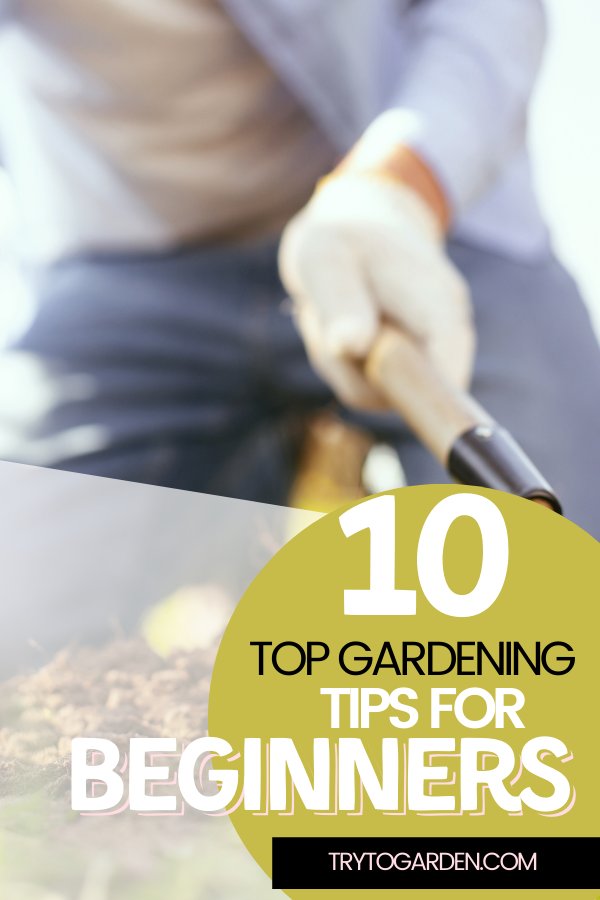
Like anything you try for the first time, gardening can seem daunting. There is a lot of information available, and we want to help you get started with some tips that will make your first time successful!
10 Top Gardening Tips for Beginners
I remember my first garden vividly. We rented a rototiller, busted up sod on an 8 by 10-foot section of grass, and then added a ton of things to balance our heavy clay soil. THEN we over-planted. Seriously. Those poor plants were from seed and so jammed in there that we couldn't move around them.
We had blisters. We had weeds. And, we had an expensive mess.....
We dropped over $400 into that garden and didn't even get one tomato.
Ugh.
Tip #1: Get Gardening Gloves
First things first, you need some basic tools. Invest in a good pair of gloves - it'll save you from blisters and cuts! We love this pair of gardening gloves on Amazon - but even your local Dollar Tree carries gardening gloves.
If you don't, it will seem like you are always digging dirt out from under your nails...
A simple set of tools would be next, like a spade and claw set.
Tip #2: What's your soil type?
Soil types vary from sand to clay. Most of us have a mixture of different soil types in our gardens, but for the best results, it is important to know what you're working with and make adjustments accordingly. If you don't know where to start, there are great resources online that can help identify which kind of dirt you've got going on underfoot.
This is one thing that is so important with gardening tips for beginners. You need to know the base of what you are building on. This will be your index for everything from adding mulch, using compost, to adding additives.
Get this soil testing kit to help you figure it out.
Tip #4: Plan your garden out
If you can, start planning your garden before it's time to plant anything. This will give you a chance to check the soil for drainage and make sure there are no creepy crawlies lurking.
Find a good spot for your garden. It's important to make sure that the area you choose is sunny, has room and isn't hard to access on a day-to-day basis. You'll need easy access in order to plant, care for, harvest and maintain plants properly!
Square Foot gardening is great for beginners - and easy to follow the "rules" on.
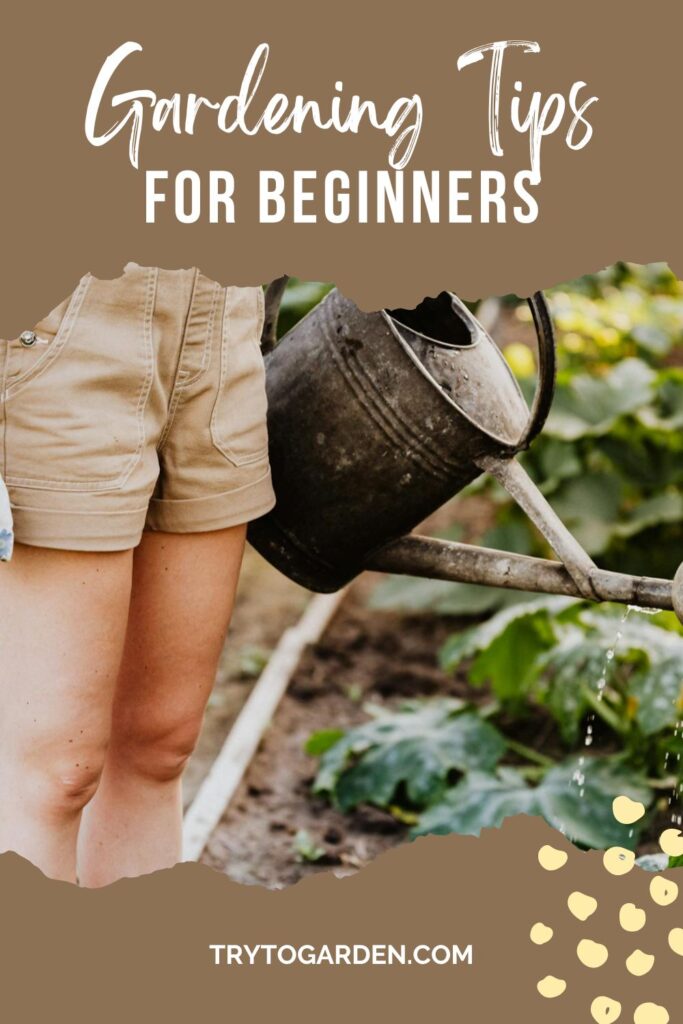
Tip #5: Start Small
I don't mean with a small plot of land like we did - that we over-crammed full of stuff. One of my Gardening Tips for Beginners is to ease into it. Start small, with something that is easy like herbs or container plants: they are perfect for beginners because they need less water, fertilizer, and maintenance than larger gardens.
It is a great way to test out whether you really like gardening or not. It is a lot better than dropping over $1,000 into tools and equipment only to find out you didn't enjoy it.
Tip #6: Eat It
If herbs are not your thing, start with plants that produce food like tomatoes or peppers; this makes them less of an investment than flowers which may not get used in the end.
This is great for getting the kids involved too! Research different recipes together so you can try the new things you grow as a family. Maybe agree to try each vegetable 5 different ways before saying that you do or do not like it.
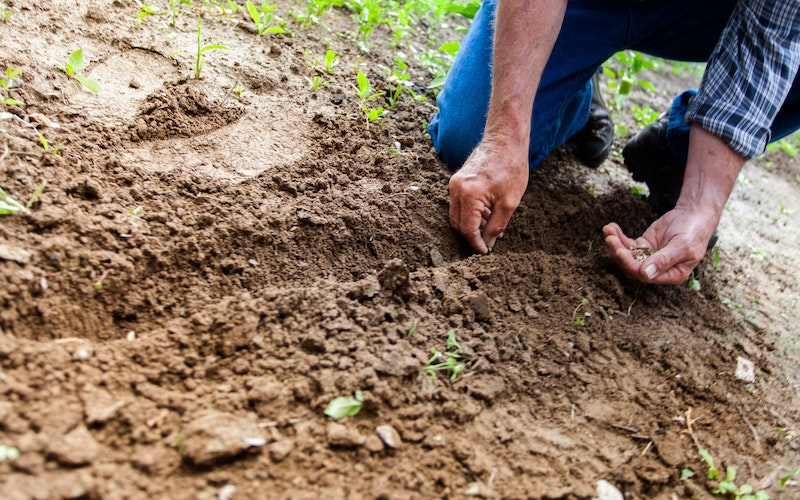
Tip #7: Pace Yourself
Buy one plant at a time so you can take care of each one individually while getting used to how much food they put out; this will help avoid overloading yourself on too many chores when starting off as well.
This is where theme gardens come in handy - like having a salsa garden that is just jalapenos and tomatoes. After you whip up a few batches of homemade salsa, even the rookie gardener is brave enough to move onto something new.
Tip #8 Give it some space
Make sure to leave at least six inches between plants when planting them; this will promote healthy growth and avoid overcrowding in a small area.
This is one thing that a lot of gardeners goof on - they forget that their seedlings will get larger and need their own spot of soil for both nutrients and water. When they are crowded together, none of them win.
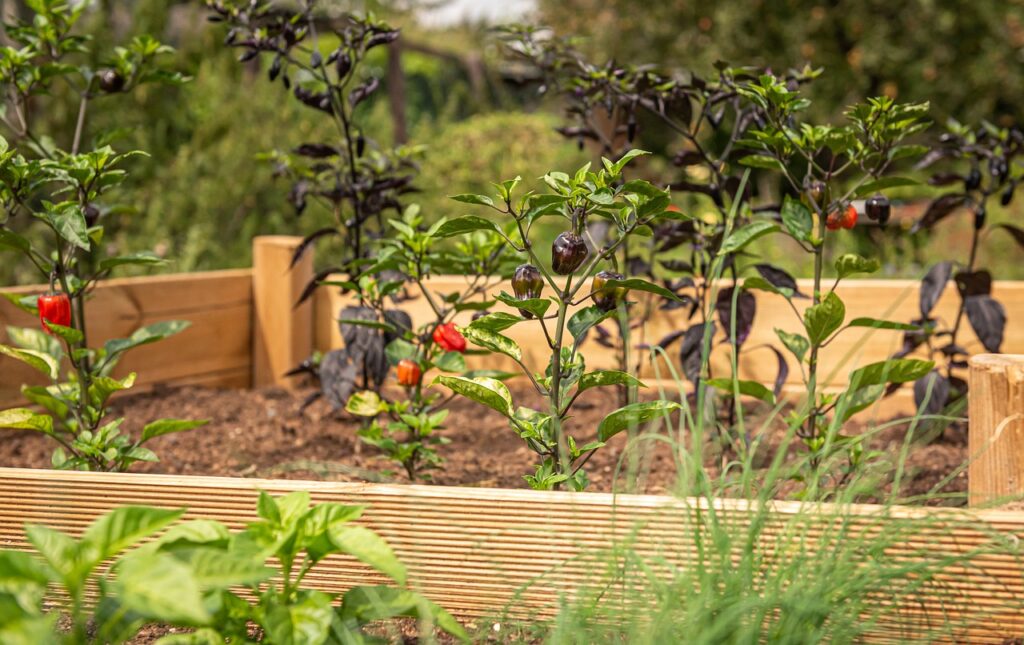
Tip #9: Don't forget about rainwater!
A good watering schedule includes natural rainfall whenever possible - even if that means getting up at three o'clock in the morning and turning off all sprinklers or hoses so they don't get wet during an impending storm.
The most common mistake made with this technique is forgetting about rainwater when determining how much to water your plants, and then over-watering them because of the lack of natural rainfall catching up!
I talk a bit more about rainwater harvesting and rain water usage.
Tip #10: Don't skip the stakes
Posts or sticks may be a good idea for deep-rooted plants that like to push their way out of the ground, such as tomatoes and peppers.
This will help them survive in windy areas where they might get pulled up by strong gusts; this is especially important if you're growing in an open area with no other protection from natural elements.
These are pretty inexpensive - even Aldi has nice sturdy ones each year in a 4-pack for a couple of bucks.
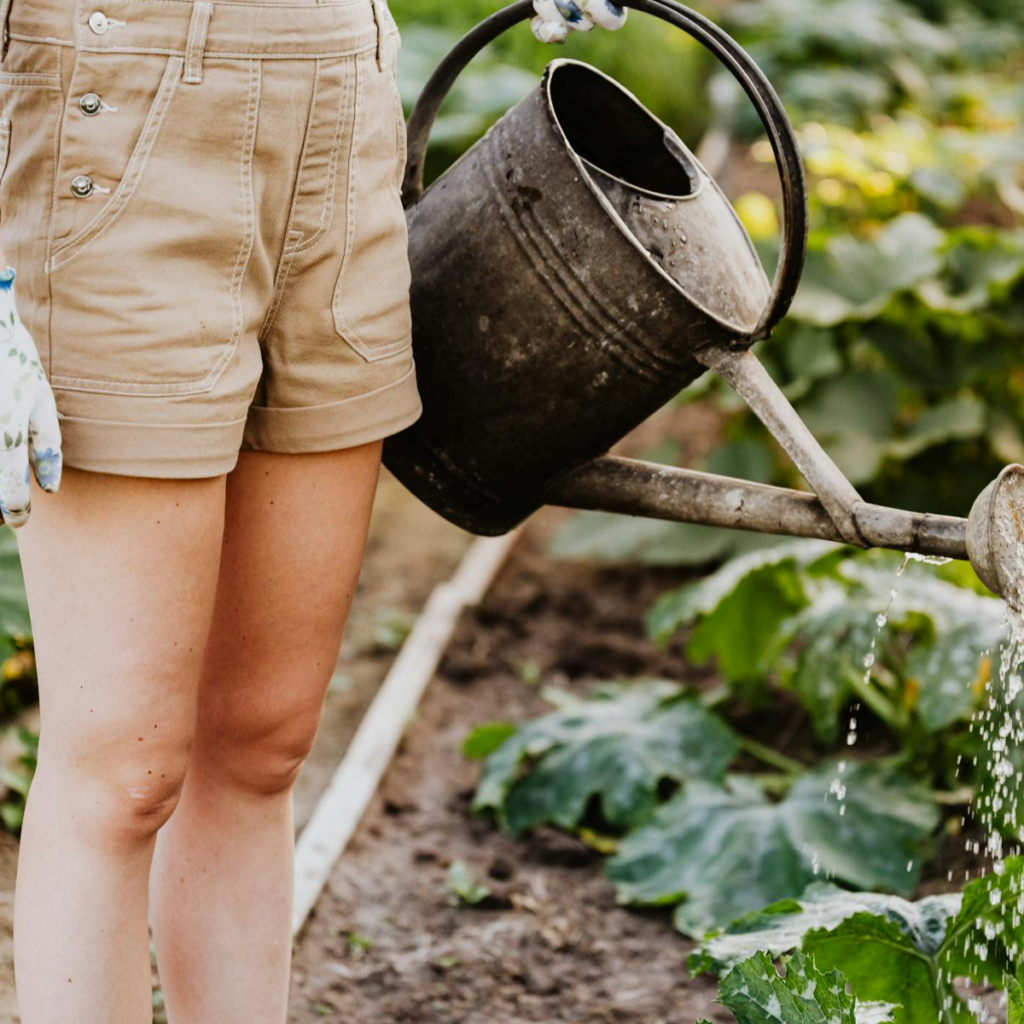
You can do this!
I hope that our ten tips will help you get started with gardening. With today's economic climate, it knowing how to source some of your own produce is not only a thrifty thing, but a great skill to learn.
